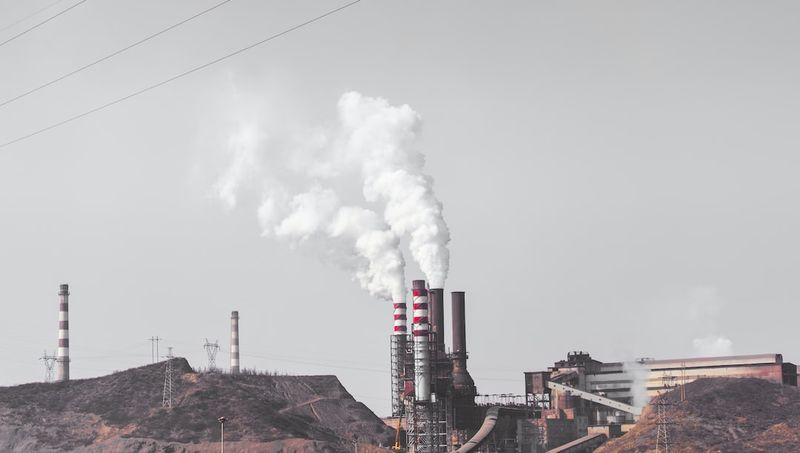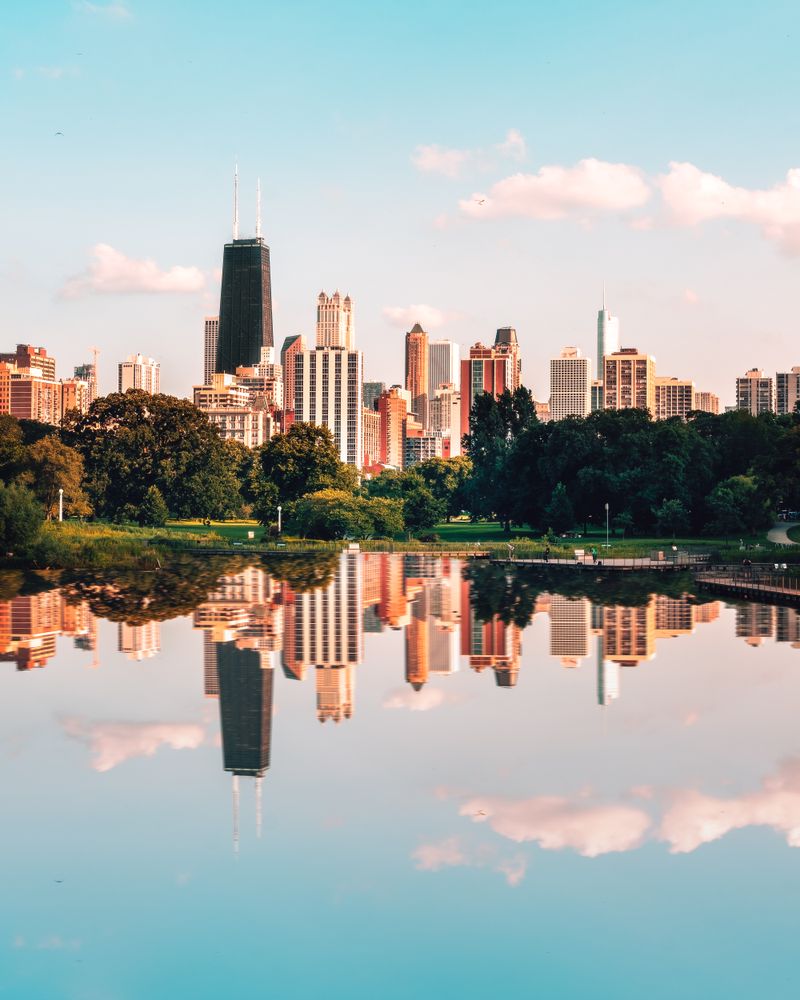Chicago‘s Air Quality Now ‘Very Unhealthy’ and Currently the Worst in the World
The Threat to Public Health
Chicago, known for its breathtaking skyline and vibrant culture, has now earned a dubious distinction: it currently holds the title for the worst air quality in the world. The deteriorating air conditions in the city are a result of smoke from Canadian wildfires, which has engulfed the region and caused the air quality to plummet to dangerous levels. In fact, the situation has become so dire that the air quality in Chicago has been rated as “very unhealthy.”
This drastic decline in air quality poses a severe threat to public health, especially for vulnerable groups such as individuals with heart or lung diseases, older adults, children, and teenagers. The recommendation from airnow.gov is clear: these individuals should avoid engaging in physical activities outdoors. For the general population, it is advised to limit strenuous outdoor activities, keep outdoor exposure short, and consider moving physical activities indoors or rescheduling them.
The Impact on Respiratory Conditions
Dr. Nimmi Rajagopal from the Cook County Health Department emphasizes the urgency of this situation for individuals with respiratory conditions like asthma and Chronic Obstructive Pulmonary Disease (COPD). These individuals are at particular risk due to the inflammatory nature of their airway diseases, which makes them more susceptible to the harmful effects of poor air quality. It is crucial that those with such conditions take extra precautions and ensure they are not exposed to the compromised air.
A City Choking on Smoke
Chicago‘s air quality woes are a result of the smoke drifting down from Canadian wildfires, carried by northerly winds that have engulfed the region. The World Air Quality Index has identified Chicago‘s air as “unhealthy” and marked it in the red zone, highlighting the severity of the situation. This disturbing reality is not unique to Chicago, as other cities such as Minneapolis and Detroit also find themselves among the top 10 worst air quality locations.
In response to these hazardous conditions, Chicagoans are urged to wear masks as protection from air pollution, run air purifiers within their homes, and keep windows closed to minimize exposure. The impact of the toxic air has even led to the closure of beaches in Evanston, a city neighboring Chicago, due to the poor air quality.
The Climate Crisis and Public Health
Mayor Brandon Johnson acknowledges that the current episode of hazardous air quality underscores the devastating impact of the climate crisis on not just Chicago‘s residents, but people worldwide. The intense wildfire activity and subsequent smoke pollution that have engulfed North American cities like Chicago, New York City, Washington DC, and Montreal serve as unnerving reminders of the harmful effects of climate change.
As much as we must combat the immediate health concerns caused by these deteriorating air conditions, it is imperative that we address the root cause of this crisis. Climate change is undeniably exacerbating these situations, and urgent action is required to mitigate its effects and safeguard public health.
Conclusion: Urgent Action Required
Prioritizing Public Health
The dire state of Chicago‘s air quality demands immediate attention and action. The health and well-being of the city’s residents, especially those with existing respiratory conditions, must be prioritized. Authorities should consider implementing stricter measures to reduce air pollution, such as stricter regulations on industrial emissions, expanding green spaces, and promoting public transportation to minimize car emissions.
Investment in Renewable Energy
Chicago‘s air quality crisis also underscores the need for a radical shift towards renewable energy sources. The reliance on fossil fuels is not only contributing to climate change but also directly impacting the health of millions. Equitable and just transition policies that prioritize the creation of green jobs and invest in renewable energy infrastructure can both combat climate change and enhance public health.
Collaboration and Advocacy
Addressing the air quality crisis in Chicago requires collaboration between governments at various levels, organizations, and individuals. It is incumbent upon policymakers to prioritize environmental health and allocate resources towards research, monitoring, and initiatives that mitigate air pollution. Citizens must also actively engage and advocate for necessary changes in policy and personal behavior to reduce pollution and mitigate the climate crisis.
Chicago‘s current air quality crisis serves as an urgent wake-up call, not only for the city itself but for societies worldwide. It is imperative that we recognize the interconnectedness of our actions with the environment and take collective responsibility to safeguard the planet and protect public health.

<< photo by JuniperPhoton >>
The image is for illustrative purposes only and does not depict the actual situation.
You might want to read !
- “Dylan Crews’ Incredible Wall Catch Propels LSU Baseball to Victory over Florida”
- The Glitz and Glamour of the 2023 NHL Awards: A Star-Studded Affair
- The Evolution of Ariana Grande: Celebrating Her Greatest Collaborations
- Air Quality Alert Day: The Impact of Canadian Wildfire Smoke on Outdoor and Indoor Environments
- Air Quality Alert: City Response and Implications for Public Health
- How Dangerous is the Air We Breathe? A Look at the City’s Response to Air Quality Alert.
- The Grimace Shake: A Flicker of Hope for Humanity
- Examining the Impact: Los Angeles Angels’ Acquisition of Former KC Royals Star Mike Moustakas
- Why Putting Pitching First is Key for the Colorado Rockies – A Mile High Necessity
- Navigating the Threat: Understanding the Implications of Rare Malaria Cases in Florida




